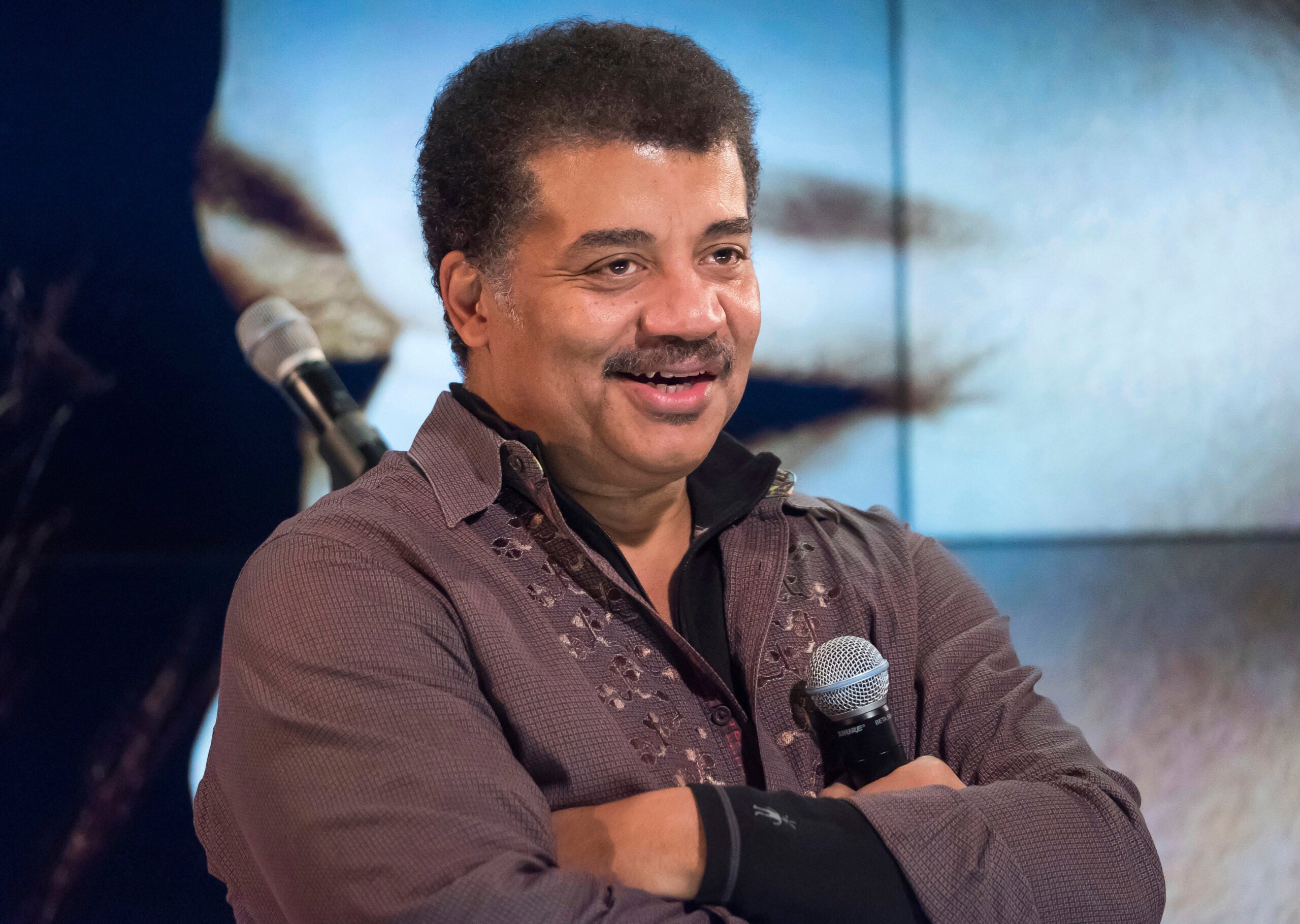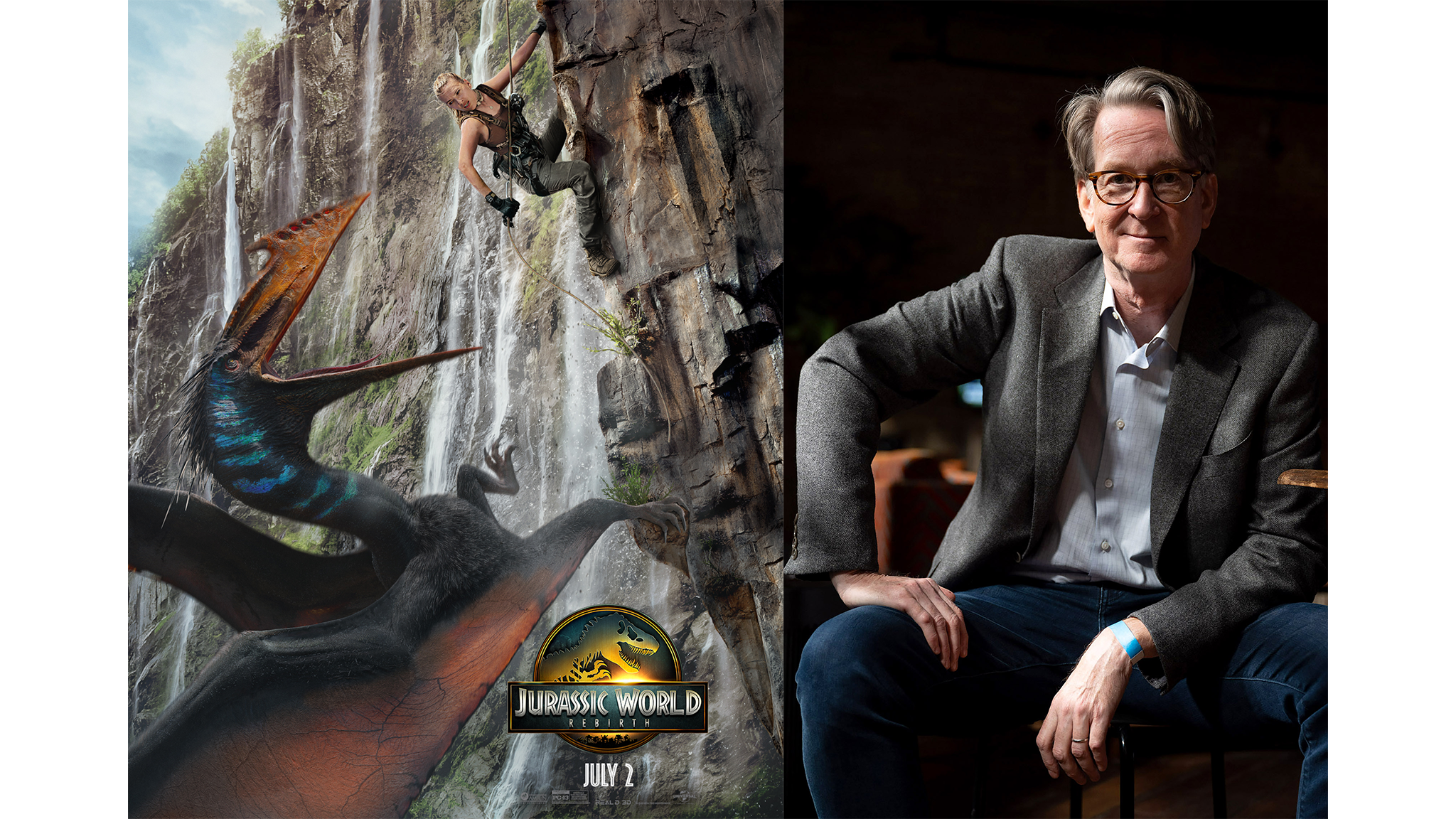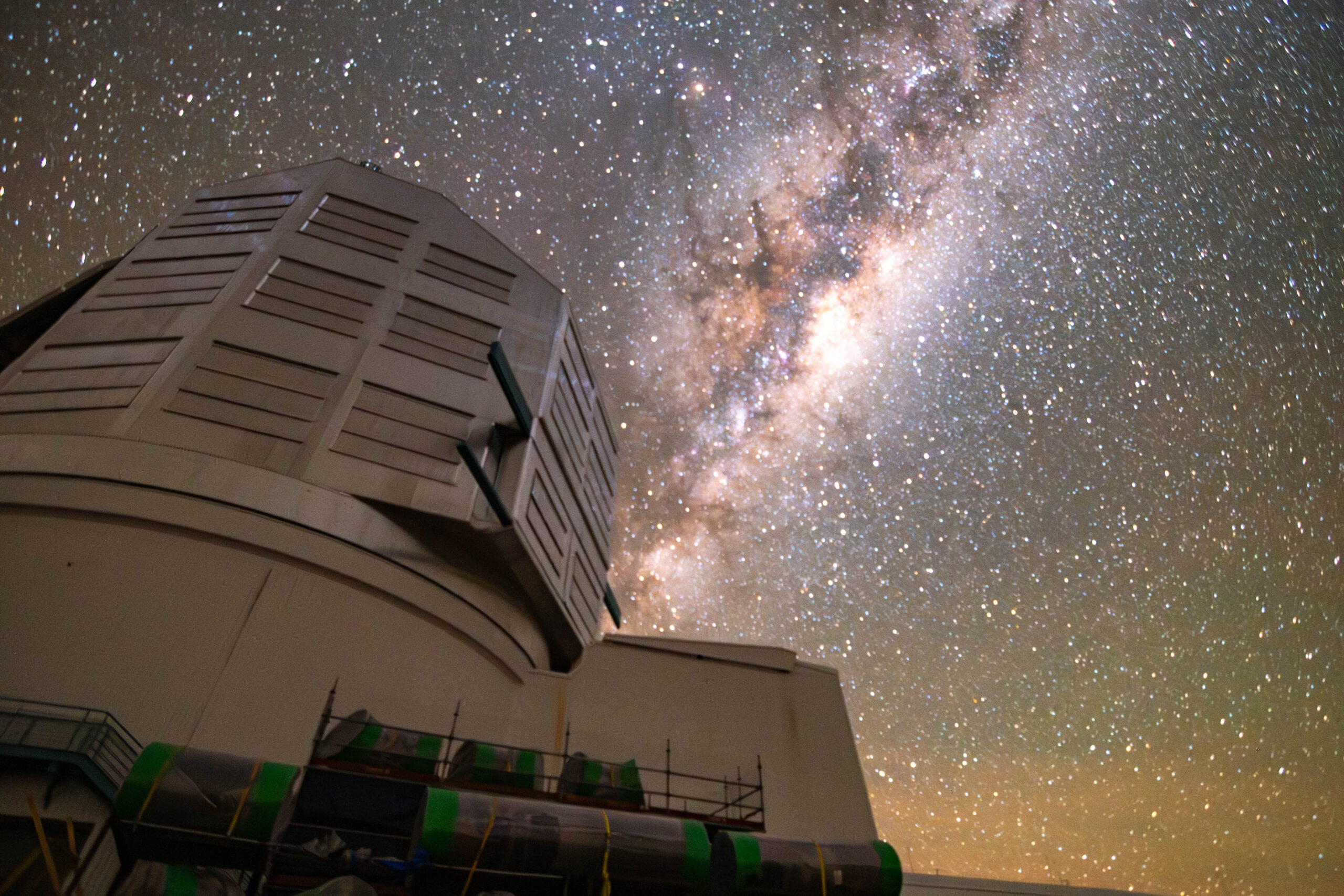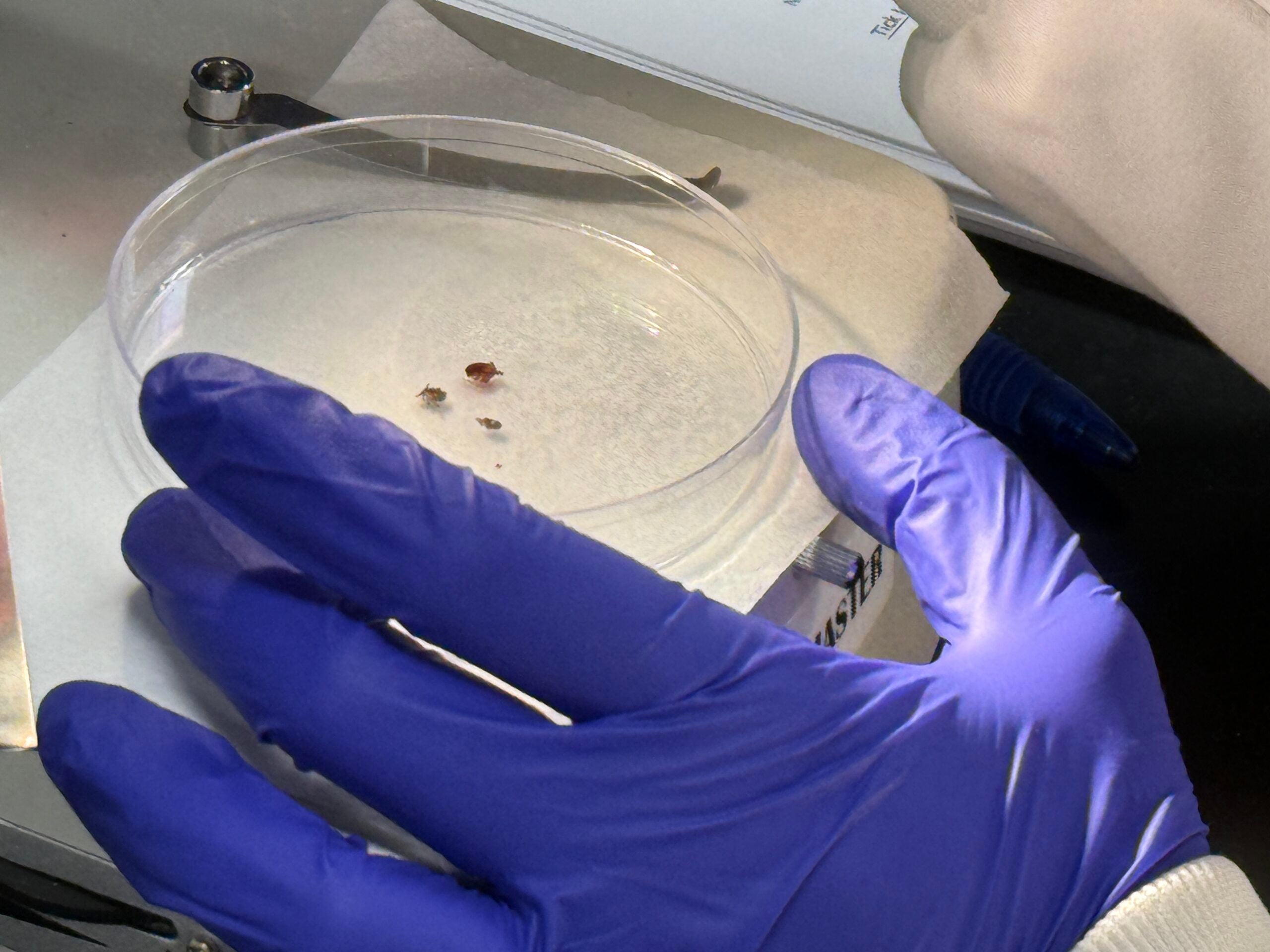Asked if scientifically baseless plots prevent him from enjoying a lot of movies, famed astrophysicist Neil deGrasse Tyson replied, “No.”
“I just observe it. I don’t invest emotion in it,” said Tyson, who directs New York City’s Hayden Planetarium and has popularized science through many books, lectures and media appearances.
Tyson is scheduled to visit Milwaukee on Friday to present a lecture titled “An Astrophysicist Goes to the Movies, the Sequel.” Ahead of the event, Tyson appeared on Wisconsin Public Radio’s “The Morning Show” to discuss his critique of films and the possibility of life on another planet.
News with a little more humanity
WPR’s “Wisconsin Today” newsletter keeps you connected to the state you love without feeling overwhelmed. No paywall. No agenda. No corporate filter.
“I am pointing out all sorts of science flaws. By the way, I also point out where they got science right,” Tyson said.
The following was lightly edited for brevity and clarity.
Kate Archer Kent: Screenwriters and directors bend the truth a bit on the science in order to make their stories work. Shouldn’t they be allowed some latitude?
Neil deGrasse Tyson: Oh, of course. My motto, my operational intent, flows from a quote from Mark Twain. He said, “First, get your facts straight. Then distort them at your leisure.”
Don’t ignore science that could have told a better story just because you didn’t know the science. Bring a scientist on to offer comments and ask, “Was that what would happen to you as you get near a black hole?” That’s way better than anything the screenwriter is going to imagine is going to happen to you. … If you put a science bit in a storyline that is just flat out wrong, and you think you’re telling a better story, you’re not. And I would call you out on that.
KAK: You’ve said the 1999 film “The Matrix” and the 1997 film “Contact” are two of your favorite science fiction films. What sets these two apart?
NDT: “Contact” had just very good, authentic science in it. It’s based on a novel by Carl Sagan, so it’s got very good starting points. What I especially liked about “Contact” was how the public was authentically represented in how they might react to information that we made actual contact with intelligent aliens on another planet. These are not antennae aliens walking around Earth. No, this was like being contacted through telescopes, and they sent us information on how to build a ship to go visit them. It’s very deeply thought out. I give it very high marks.
“The Matrix” is just my favorite movie, that’s all. It’s pure “whoa.”
By the way, there’s one flaw in “The Matrix,” but I’m going to give it a hall pass because there isn’t a movie without that one flaw. (In the movie), the machines are harvesting people to draw energy from our bodies, because we generate about 100 watts of power just being alive. … Here’s the problem. Whatever energy source you’re giving to the humans, just use that energy source. You’re not going to get more energy out of the humans that you’re putting into them, because that’s not how thermodynamics works. So that’s just a flaw. But there wouldn’t be a movie without it.
KAK: Debates are raging around the validity of vaccines, around face masks and COVID-19. How are vaccines depicted in movies?
NDT: I just saw the 1971 version of “I Am Legend,” which was called “The Omega Man.” Charlton Heston was a military doctor who developed a vaccine for some kind of virus that actually killed most of the people in the world. And half the film is his effort to try to save the lives of the people who were sick, who hadn’t yet died or happened to have some immunity. It’s all about vaccines.
I was reminded that was when people embraced vaccines — a whole other era. The more modern version of that film — “I am Legend” with Will Smith — was a celebration of research and what was required to protect a living population of people from a disease. Any time I’ve seen a vaccine in film, that’s the light in which it is presented, and understandably so. That is the value of vaccines to our health and survival.
The lethality of the diseases represented in those films was huge, much higher than anything we have seen (in reality). That’s why they’re science fiction. You take stories and take them to their limits and see how people respond and react. But you could ask what lethality level would COVID had to have been for people to not say, “I don’t trust vaccines. I don’t want it.” Meanwhile, it’s on its way into a community. If it killed 90 percent of people, I’m thinking everybody would have lined up for the vaccine.
I think it’s the responsibility of agencies and the people tasked with maintaining our health and well-being to update our understanding of what the vaccines and viruses were doing. I don’t know that that was done that transparently in the early parts (of the pandemic). Some people think that if a scientist makes a statement and if it’s different later, then you can’t trust scientists. (They’re not) realizing that the moving frontier of any research is susceptible to new research. That’s what distinguishes science from everything else. That should be celebrated, not rejected.
KAK: What are the odds of life on other planets?
NDT: It’s highly likely to anyone who’s studied the question. If you look at life on Earth, what is it made of? Hydrogen, oxygen, carbon and nitrogen. Those four ingredients are the most common chemically active ingredients in the universe. Life on Earth was highly opportunistic when the molecules assembled. Life formed almost as fast as it possibly could have. It took about 100 million years, which sounds like a long time, but in the life of the Earth, that’s short. And the universe is old. We have no reason to expect our corner of the universe is special.
(The likelihood of life elsewhere in the universe) is a big branch of NASA’s interest. When we send rovers to other planets, we’re looking for organic molecules, we’re looking for water, something fundamental to life as we know it.
Wisconsin Public Radio, © Copyright 2026, Board of Regents of the University of Wisconsin System and Wisconsin Educational Communications Board.






